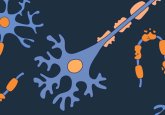Outsourcing precision medicine and companion diagnostics research

Buer Song received his medical degree from Peking University Health Science Center (Dongguan, China) in 2001. After that, he pursued a PhD degree in Molecular and Cellular Pathology at University of Alabama at Birmingham (USA). After receiving his PhD, he moved on to a post-doctoral research position at UCLA (CA, USA). In 2011, Song entered a combined Anatomic/Clinical Pathology residency program at University at Buffalo (NY, USA). He received fellowship training in Surgical Pathology and Clinical Informatics at University of Pennsylvania Hospital (PA, USA) and University at Buffalo, respectively. After becoming board certified in Anatomic/Clinical Pathology and Clinical Informatics, Song started practicing Pathology and Clinical Informatics at Buffalo General Hospital (NY, USA) and Rochester Regional Health (NY, USA) for several years, taking the roles as attending pathologist, system lead for pathology informatics, and lab directorship at Monroe County HIV/STD clinics, etc. In 2020, Song Joined Frontage Laboratories (PA, USA) as Vice President of Pathology and Clinical Informatics. Song has more than 20 years of experience in pathology research and clinical practice as well as authorship of many highly cited peer reviewed publications. His current interest is to leverage advanced technologies to explore new territories in cancer research, especially precision medicine, targeted therapy, as well as biomarker development.
Precision medicine is a medical model that proposes the customization of healthcare with medical decisions, treatments, practices or products being tailored to a subgroup of patients, instead of a one-drug-fits-all model. The origin of ‘precision medicine’ and its similarity/difference with ‘personalized medicine’ is still a controversial topic, with a lack of consensus among medial historians. However, its most widely recognized applications probably originated in the field of oncology and has seen tremendous progress with the evolvement of molecular pathology and genetics. In the most recent years, we have also seen application and research extending into more non-tumor conditions including psychiatric diseases, neurodegenerative diseases and even cardiovascular diseases. In any of these medical specialties, diagnostic testing is of the utmost importance for this precision medicine model. It is employed to select appropriate and optimal therapies based on the context of a patient’s molecular biology characteristics, including but not limited to, biomarkers, patient’s genetic profiles and relevant epigenetic modifications.
A biomarker is a measurable indicator of some biological state or condition. These indicators are usually measured and evaluated using samples from patients, such as blood, urine, body fluid or tissue. Biomarkers are measured to examine normal biological processes, pathogenic processes or pharmacologic responses to a therapeutic intervention. They are often categorized in three primary ways according to their applications, which are predictive, diagnostic and prognostic biomarkers. A companion diagnostic is a diagnostic test co-developed with the corresponding therapeutic drug to determine its applicability to a specific patient, therefore falling into the category of a predicative biomarker. For example, a companion diagnostic test may identify whether a patient’s tumor has a specific gene change or biomarker that is targeted by the drug.
In the past few decades or so, precision medicine has made revolutionary changes in the field of modern medicine. There are many successful stories regarding new targeted therapies changing the landscape of cancer treatment. Many well know gene mutation targets such as EGFR, BRAF, ROS1, ALK, RET, MET, NTRK, etc. have been identified and drugs against them developed. Biomarkers with targeted therapy include the famous breakthrough of immunotherapy targeting PD-1/PD-L1 pathway. Many other targetable biomarkers or biomarker panel (including genetic and non-genetic) are under extensive research and show promising futures.
Key challenges
To develop successful targeted therapies, multiple challenges need to be addressed. After identifying critical actionable targets and finding the effective compounds in a research lab, extensive testing in preclinical and clinical studies needs to be carried out. During this process, one of the most important components of the study is to find critical predictive biomarkers (companion diagnostics) to guide the enrolment of study subjects, application of the compound to study subjects and evaluation of the compound’s efficacy, safety, toxicity, adverse effect, etc. Currently, although many well-established companion diagnostics have been approved by authorities, there are still challenges in companion diagnostics application and development in many aspects. For example:
- Genetic testing: As we mentioned above, many well-known pathologic genetic alterations with targeted therapies have been successfully established. The efforts of discovering new disease-driving genetic changes have never stopped. Moreover, advancements in gene sequencing technologies introduced more powerful tools to look at multiple genes at the same time with much higher throughput and lower unit cost. However, this next-generation sequencing technology is struggling with lack of standardization on both sequencing technology itself as well as bioinformatics analytical algorithms. Many vendors manufacture different panels for specific purposes and often times standardization of analytic interpretations is not possible. Users of these technologies often need to be trained extensively and experiences do not always transfer to another platform or different panels. Extensive validation is also necessary because none of these platforms are FDA approved as an in vitro diagnostic device so far (although a few panels are approved, none of the instruments are as of yet).
- Biomarker testing: A similar situation has happened in biomarker testing for targeted therapies. PD-L1 is a prominent example. Multiple compounds against this immune-regulating pathway have been developed to treat cancer patients. However, to test PD-L1 expression, multiple manufactures, clone numbers and corresponding instruments must be specifically matched with the compound used, specific organ system and cancer type. Even the interpretation of these immunohistochemical stains vary by scoring system and needs specific training for the reading pathologist. Experience again does not transfer much to another platform or clone. Each of the different antibody clones and platforms must be validated on different organ or cancer types, especially if these test results are used as decision-making end points in a clinical study. Alzheimer disease is another good example, where the major pathogenic cause is still elusive. There could be various human genes that contribute to the pathogenesis, which will require extensive scientific research process and efforts to identify and locate. Based on the pathological processes, three major categories of protein biomarkers are currently being studied, including Amyloid, Tau and neurodegeneration proteins. A good test, that features ultra-sensitivity, selectivity and robustness, is considered a game-changer for diagnosis that could impact in many ways such as: 1) achieving early diagnosis, 2) assisting and accelerating patient screening and selection and 3) serving as a powerful and reliable companion diagnosis tool. Some prominent technologies such as the Single Molecular Array (SIMOA) by Quanterix, provided such Alzheimer disease biomarker assays such as the neurofilament light chain (NF-L) assay. However, the need for more of such types of assays is imminent, for example, the Tau proteins isomers such as phospho-Tau 217 and phosphor-Tau 231.
Advice for outsourcing precision medicine and companion diagnostics research
Precision medicine and companion diagnostics research will see an explosive rate of growth in the next few decades due to the growth of new discoveries in immuno-oncology and genetic pathologies. The accelerated progress of computer technology, sequencing technology, bioinformatics and artificial intelligence will further boost an unprecedented speed of discovery in this field. During this process, the key challenges for the pharmaceutical industry include finding a reliable and competent partner for the development of diagnostics testing strategies, methods and execution of the testing. The partner should have extensive experience, top notch expertise, strong regulatory compliance history, effective communication and especially a keen interest in new developments and possess a high level of flexibility and agility in adapting to changes. Another tough challenge is to achieve the goals of the studies while keeping the cost under reasonable control, as we know most of these relatively new technologies are still costly and need creative thinking to discretely plan and execute the studies.
Due to these challenges, it is recommended to start the projects with careful selection, early engagement and thorough planning with your CRO partners.
- Selection of partners: The selection of partners should follow the above-mentioned criteria at a high level. Other considerations include effective communication to understand the CRO’s test development platform (especially the genetic sequencing platform), capability of national and global logistics, level of digitization of workflow and data management, etc. Usually, the more aspects a single CRO can do well the more likely it will be a successful partner without complicating the study with too many different partners. Moreover, the geographical coverage capability of a single CRO should be taken into account when supporting global clinical trials. An assay to support diagnostic testing draws scrutiny from regulatory agencies, namely Clinical Laboratory Improvement Amendments (CLIA) regulatory guidelines as well as FDA guidance if the assay is conducted in the United States; and EMA guidelines and other international standards if the assay is conducted in selected European countries. When a CRO is engaging a global trial, the geographical coverage of the CRO and their capability to fulfill the regulatory requirements are extremely important.
- Early engagement: Due to the varied level of complexity of many of these new testing technologies and sometimes strict sample stability requirements, early engagement will provide the CRO with ample lead time to develop test method validation, communicate about cost and/or find alternative solutions, arrange for national/global logistics, setup data transfer interfaces and provide acceptable trial datasets.
- Thorough planning: The details of the studies should be mapped out as much as possible beforehand. Sometimes several alternative plans should also be lined out for predictable deviations from the original plan. Specifically, the global and national regulations of genetic testing are under constant changes as we speak. These changes might have impacts on the ongoing studies. That is why the flexibility and agility of the CRO becomes important in this type of studies. Thorough planning would reduce many potential accidents and errors, and most importantly, provide higher success rates for the completion of the study.
Conclusion
A significant growth in precision medicine and companion diagnostics research will continue in the next few decades. The drug development and CRO industries are both preparing for the revolutionary shift of paradigm in healthcare delivery. As the new technologies and tools evolve along the growth of demand, multiple challenges need to be addressed. New methods on different platforms without standardization, ever changing compliance requirements, demand for flexibility and agility, as well as requirement of experienced experts, are among the key factors to consider for drug development companies while looking for their CRO partners.
König IR, Fuchs O, Hansen G, von Mutius E, Kopp MV. What is precision medicine? Eur. Respir. J. 50(4), 1–12 (2017).
Johnson TM. Perspective on precision medicine in oncology. Pharmacotherapy, 37(9), 988–989 (2017).
Antman EM, Loscalzo J. Precision medicine in cardiology. Nat. Rev. Cardiol. 13(10), 591–602 (2016).
Reitz C. Toward precision medicine in Alzheimer’s disease. Ann. Transl. Med. 4(6), 1–7 (2016).
Doroshow DB, Bhalla S, Beasley MB et al. PD-L1 as a biomarker of response to immune-checkpoint inhibitors. Nat. Rev. Clin. Oncol. doi:10.1038/s41571-021-00473-5 (2021); (Epub ahead of print).
Fridlyand J, Simon R, Walrath J et al. Considerations for the successful co-development of targeted cancer therapies and companion diagnostics. Nat. Rev. Drug Discov. 12, 743–755 (2013).
This feature was produced in association with:






